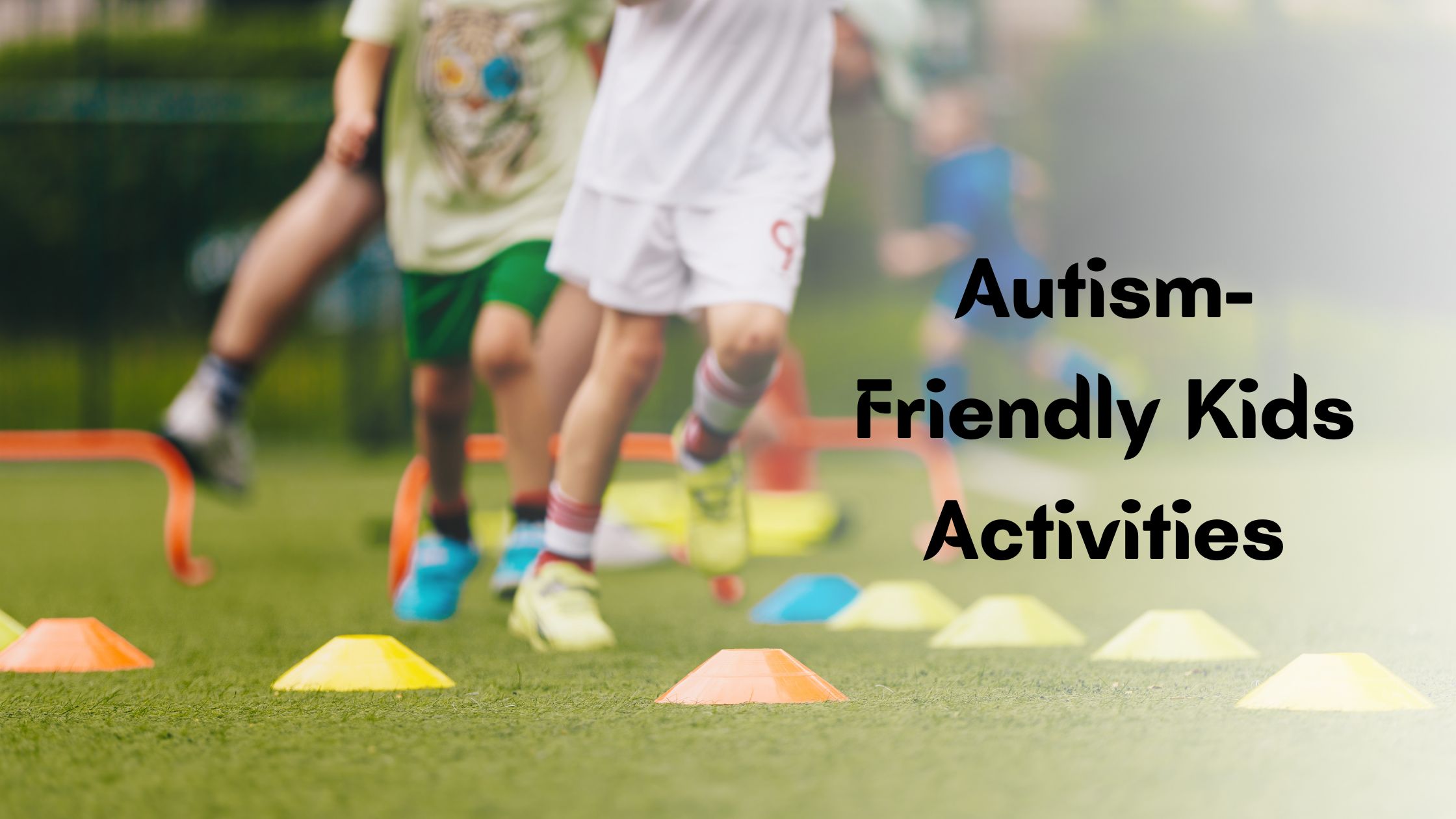Autism-Friendly Kids Activities
 Melinda Phommachanh
Melinda Phommachanh
In the realm of children’s activities, ensuring inclusivity for those on the autism spectrum is vital. Tailoring activities to meet their needs not only enhances their participation but also fosters understanding and acceptance among peers. Here are some tips and considerations when planning activities which are autism-friendly:
Sensory Considerations
1. Sensory-Friendly Environments: Many children with autism have sensory sensitivities. Creating activities in calm environments with soft lighting and minimal noise helps reduce sensory overload and anxiety.
2. Choice of Materials: Opting for soft, smooth, or varied textures in materials allows children to engage comfortably. Avoiding strong smells or harsh textures ensures all participants can enjoy the activity without discomfort.
3. Sensory Play: Activities involving sensory exploration, like sand play, water play, or tactile art projects, provide opportunities for sensory integration and regulation in a supportive setting.
Structure and Predictability
1. Clear Instructions and Expectations: Providing clear, step-by-step instructions and setting expectations helps children with autism understand what is required and reduces anxiety.
2. Visual Supports: Using visual schedules, picture cards, or timers aids in transitions between activities and helps children anticipate changes, promoting a sense of security and reducing stress.
3. Flexible Timings: Allowing flexibility in activity duration and offering breaks accommodates varying attention spans and sensory needs.
Social Interaction
1. Peer Support and Understanding: Encouraging peer involvement and educating participants about autism fosters a supportive atmosphere. Activities promoting teamwork and cooperation help develop social skills in a structured environment.
2. Communication Strategies: Using alternative communication methods, such as visuals or written prompts, facilitates interaction and understanding among participants.
3. Choice and Autonomy: Offering choices within activities allows children to participate according to their interests and preferences, promoting autonomy and engagement.
Variety of Activities
1. Art and Creativity: Art activities that encourage individual expression, such as painting, drawing, or crafting with diverse materials, can be enjoyable and therapeutic.
2. Physical Activities: Modified physical activities focusing on coordination, balance, and sensory integration, such as yoga or obstacle courses, provide opportunities for movement and sensory regulation.
3. Nature and Outdoor Play: Outdoor activities like nature walks, gardening, or exploring sensory gardens offer calming experiences and sensory stimulation in natural settings.
Collaborative Approach
1. Training and Awareness: Educating activity leaders, staff, and volunteers about autism and sensory sensitivities enhances their ability to create inclusive environments and respond effectively to individual needs.
2. Feedback and Adaptation: Seeking feedback from participants and caregivers allows for ongoing improvement and adaptation of activities to better meet the needs of children with autism.
Benefits of Autism-Friendly Activities
Creating autism-friendly kids activities is about more than just making adjustments; it’s about fostering a sense of belonging and promoting the overall well-being of children with autism. By embracing sensory considerations, providing clear structures, and encouraging inclusive social interactions, these activities support cognitive, emotional, and social development in a supportive and accepting environment.
In conclusion, as awareness and understanding of autism grow, so does the importance of designing activities that accommodate diverse needs. By prioritising inclusivity and adapting activities to suit individual differences, we create opportunities for all children to participate, learn, and thrive together. This approach not only benefits children with autism but enriches the experiences of all participants, promoting empathy, acceptance, and mutual respect among peers.
Subscribe to my newsletter
Read articles from Melinda Phommachanh directly inside your inbox. Subscribe to the newsletter, and don't miss out.
Written by

Melinda Phommachanh
Melinda Phommachanh
Melinda Phommachanh is a skilled Corporate Governance Professional with a legal background, experienced in supporting and advising a diverse portfolio of private, public/listed companies within a range of industries including legal, energy, education, financial services, industrial, and media. Recognized for strong attention to detail, proactive business processes, and strategic regulatory advice. Through continuing education and industry knowledge, successfully contributing positive performance outcomes and results to establish and maintain strong, effective governance practices to create value for stakeholders.